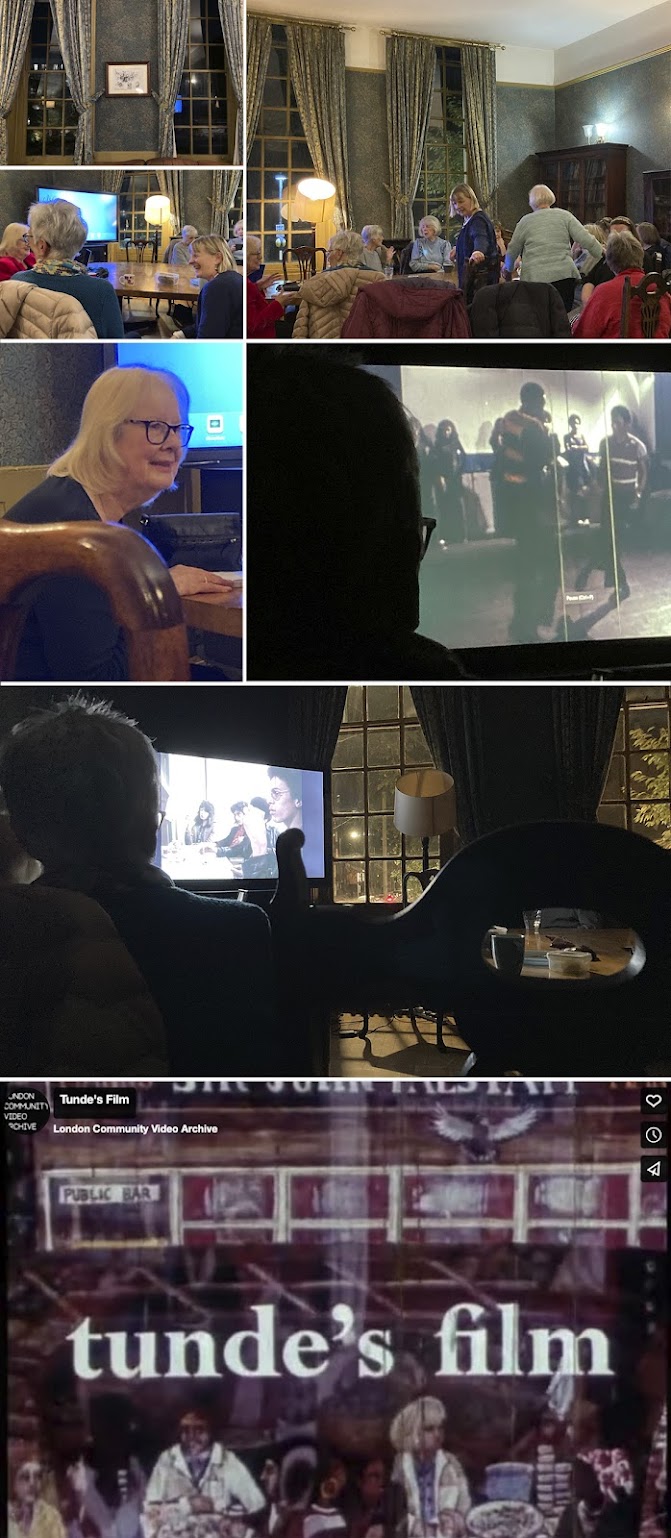Producer and director Maggie Pinhorn focused on her work in Tower Hamlets, which started in the 1970s. She had studied theatre design at Central School of Art and Design, worked in the film industry and then become independent.
Maggie was approached by Dan Jones, a youth worker in Stepney. Was she interested in making a film about a group of young people he’d met on the street. Maggie had a long family history in the East End. So she met them, mixed race, Black and white boys hanging around with nothing to do, badly-behaved, with a sense of fun – but that didn’t mean that they didn’t have ideas. And they wanted to make a film.
Tunde wanted to do a story about being trapped and not being able to see any way out. He wrote a synopsis and they got together to plan it. It was improvised, like a Mike Leigh film, with words spoken for those who couldn’t read.
Maggie asked for help from everyone she knew in the film industry and got funding from the Rowntree Trust. She had a visit from The Guardian because it was so unusual to see a film project by young people rather than about them. A top sound editor and sound engineer stepped forward, interested because that was where they came from.
Tunde’s Film was shot in a week and the boys visited the cutting room.
The film was shown at London and Edinburgh film festivals, in independent cinemas and then came an approach from BBC Open Door to make a film. So they did: news, weather, the lot, packed into an hour (see the film here).
Maggie’s work grew into a community arts centre in the basement of the old town hall. They couldn't continue making films at that level but video opened up new opportunities. “You could draw with it” – and people did, making films now in the London Community Video Archive.
To work in the community you had to know about football and you had to learn how to swear well. And an event project came from the estate-based football teams, with a truly collaborative spirit. It had to start with football, then music… and the beer tent generated the money for the performers. There was strong resistance to funding that didn’t go into the local community.
Tower Hamlets Arts Project – THAP – followed. Maggie organised for all of the projects across the borough to be exhibited at the Whitechapel Gallery, where Nicholas Serota was new in post, a public showing of what people could do.
Next came Alternative Fashion Week at Spitalfields Market. Student designers were invited to submit work. There were lunchtime shows, stalls – and for live music, they had to tell the Musical Director about their collections. There were modelling lessons at the Brady Centre, with models of colours, sizes and abilities. Visitors loved it and the press loved it. Maggie also started street theatre in Covent Garden.
Spitalfields Show at Spitalfields City Farm was like a country show. SpitLit was a literary festival for every kind of writing, opera in a pub had cardboard bow ties for everyone. There was the Battle of Cable Street Group, International Women’s Week, Photomonth, which showed work in every setting and will return next year, run by group of photographers. There's Black History Month and Women’s History Month.
We were treated to a screening of Tunde’s Film, which we all agreed was a wonderful piece of film making, with much of relevance today.
Maggie was asked where the film was made. Everything was shot in four streets around Cable Street and Watney Market.
There was a comment about how well-dressed the boys were. “They all worked in the Schmutter trade”, Maggie replied – they would make their outfits. Looking good was important to them.
Where are they all now? Some are dead. But Tunde went on to write more plays and has worked at the Theatre Royal Stratford East. Another of the boys became a cab driver. Lesley, the girl, lives in the West Country. Dan Jones still lives in Cable Street. And Maggie was delighted that when the boys got together for a screening at the Genesis Cinema, they were as badly-behaved as ever.
Through all of Maggie’s work, and at the heart of Alternative Arts, is a desire to give people that opportunity. Maggie quoted the Nolan Principles: selfnessness, integrity, objectivity, accountability, openness, honesty and leadership. “These things matter.”
A massive East End WI thank-you to Maggie for a talk and screening packed with stories.
Thanks too to St Margaret’s House for letting us use the beautiful Anson Room while works in the hall are underway.
Our monthly coffee corning: Friday 25th October. Meet between 10.30 and 11.00, Allpress, 55 Dalston Ln, London E8 2NG
Meet for coffee and a chat. After coffee, an opportunity to visit the lovely Dalston Curve Garden.


No comments:
Post a Comment